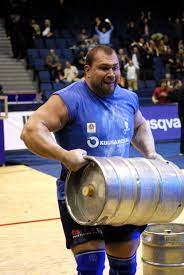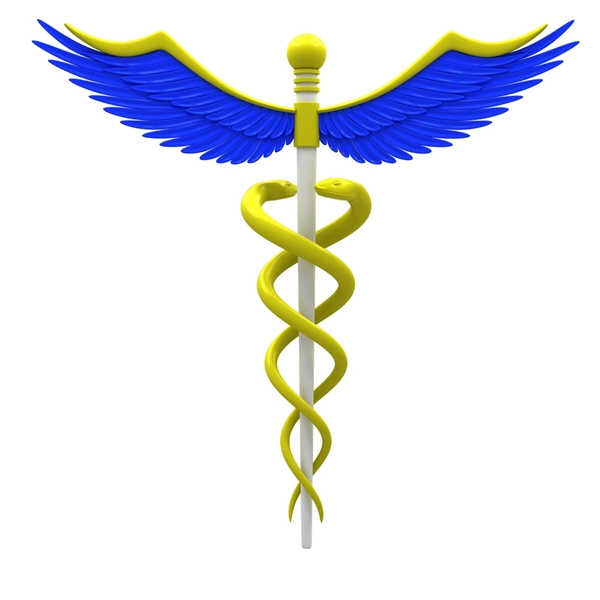Menopause. Ask any woman. She’ll describe the hot flashes...the irregular periods...the mood swings...the cruel insomnia...the weight gain...the night sweats...chills...vaginal dryness...and more painful and  depressing symptoms.
depressing symptoms.
The point is: for many women; menopause is real, very real. It’s not something that can be ignored or go away on its own. Women’s concerns over this uninvited guest deserve to be heard and treated like the medical affliction it is. “The change of life” is not something to be scoffed at.
But what about men?
Men? Is it true that men also experience male menopause? YES! Often referred to as andropause (male menopause), men often feel the full fury of “old-man aging” in many ways:
- Chronic fatigue
- Weight gain and a steady increase of adipose tissue (aka fat)
- Shrinking muscle mass and a dreadful loss of strength
- Depression
- Irritability
- Brain fog and difficulty concentrating
- Bothersome joint aches and pains
- Plunging libido
- Erectile dysfunction
- Drying, sagging, wrinkled skin.
- Insomnia and trouble staying asleep
- Gynecomastia (aka man boobs)
- And more symptoms, some of which are minor, but they all add up to make life miserable for many middle-aged men experiencing andropause.
These symptoms and developments are real, as real as what women suffer. But for some reason, they are usually downplayed or even ignored. “Man up,”..."Deal with it,”...and “It’s natural, there’s nothing you can do about it” are the “advice” that is all too often given to men who are seeing their manhood fade like the setting sun.
Worse, consider this. The above idiotic cliches are not the only things that frustrate aging men. At a time when the wheels seem to be coming off the world in fits of madness, the added responsibilities that men  have, the continual concern over inflation, their family's health as well as their own, and the near-total disappearance of common sense and sanity in contemporary society, men need to be physically, mentally, and emotionally strong, and prepared to adapt to an environment disintegrating at a blistering pace.
have, the continual concern over inflation, their family's health as well as their own, and the near-total disappearance of common sense and sanity in contemporary society, men need to be physically, mentally, and emotionally strong, and prepared to adapt to an environment disintegrating at a blistering pace.
If all of this weren’t bad enough, consider this: despite eating healthy, trying to get a good night’s sleep, working out, and calling on their mental toughness and fortitude, these disheartening symptoms continue to advance.
To be fair, a healthy lifestyle will slow down this grotesque encroachment of problems. But the real issue is the loss of a man’s precious hormones like Human Growth Hormone (HGH) and Testosterone.
Perhaps part of the problem that might describe why men are reluctant to consider hormone replacement therapy is the bad rap on testosterone. The media portrays men’s concerns over diminishing masculinity as nothing to be concerned about. Men are subjected to a continual bombardment of a media drumbeat that “times have changed,” and so-called “toxic masculinity” is the main problem.
masculinity as nothing to be concerned about. Men are subjected to a continual bombardment of a media drumbeat that “times have changed,” and so-called “toxic masculinity” is the main problem.
Strong, brave, muscular men are mocked as Neanderthals by dorky, wimpy, cowardly journalists who the former Mr. Olympia, famous actor and former California governor Arnold Schwarzenegger referred to as “girly men.”
It’s time for a complete culture shift concerning testosterone
Dr. Jeff Foster, a men’s health specialist and a co-founder of the H3Health company focused on the well-being of 40-plus males, agrees. “The question I get asked the most is, ‘Is the male menopause real?’?” he said. “And my answer is a definite ‘yes."
Dr. Foster explained that the difference between andropause and menopause is that andropause advances slowly, methodically, and stealth-like in men and can develop at different life stages. Testosterone steadily accumulates in men until around 30, gradually decreasing by approximately 10% per decade.
This may not sound like a big deal, but it is! Dr. Foster stated that “Some men might have a really high testosterone at 30, and they may not notice a loss of testosterone until they’re 70. A guy’s peak might only have ever been at the bottom end of normal, and then he might suddenly get symptoms – like, ‘Why am I tired all the time?’ – as early as his 30s.”
“As a guy,” he continued, “testosterone makes you what you are. Yes, you can reduce or mitigate its loss by eating well, training hard, and ensuring you don’t  have other risk factors in life (smoking and excessive alcohol intake). But if you understand how the male process works, then you also see how it matches with the female process. In just the same way that a lack of estrogen affects women, when you take testosterone out of guys’ bodies, they feel dreadful. Testosterone deficiency in men mimics menopause in women very closely.”
have other risk factors in life (smoking and excessive alcohol intake). But if you understand how the male process works, then you also see how it matches with the female process. In just the same way that a lack of estrogen affects women, when you take testosterone out of guys’ bodies, they feel dreadful. Testosterone deficiency in men mimics menopause in women very closely.”
The problem is that many physicians often dismiss hypogonadism (low testosterone, aka “Low-T”). “Most doctors don’t consider testosterone deficiency in their differential diagnosis for men with low energy,” Dr. Foster claims. “Worse still is the fact that many of us [doctors] don’t even know that we should.”
Recently, Foster saw a patient in his late 60s who had been diagnosed with early-stage dementia. “When the testosterone was replaced his brain fog lifted, and the patient’s memory went back to normal.” As mentioned earlier, brain fog is a symptom of andropause.
So what to do? What can be done?
Step one is to acknowledge the problem. Men suffer from andropause as much as women suffer from menopause. There is no reason for men to be ashamed of their diminished manhood. And that goes double for physicians. When men complain about this ebbing of energy and other symptoms of Low-T, the first thing to do is a test for hormone levels.
A blood test is step 2. Before any hormone replacement therapy, it must be determined that low hormone levels are the problem. The challenge is that hormones naturally fluctuate, similar to how estrogen fluctuates in women; therefore, the symptoms may not be attributed to hormone depletion.
“They vary substantially over the course of a day,” explains Dr. Richard Quinton, a consultant endocrinologist. The highest levels occur on waking, with the afternoon and early evening yielding lower levels. “And a big meal suppresses testosterone levels by 20-30 percent.”
Dr. Quinton continued: “Every single form of acute and chronic physical and mental illness is also associated with lower testosterone levels as a normal physiological effect. This is not hypogonadism – decreased functional activity of  the gonads when the body is not producing enough of the testosterone hormone – but non-gonadal illness syndrome (NGIS). Symptoms of this include obesity and a metabolic slowdown. “Genuine andropause is actually very rare, affecting fewer than 1.5 percent of older men. Unfortunately, geriatricians and rheumatologists rarely test for it, let alone treat it.”
the gonads when the body is not producing enough of the testosterone hormone – but non-gonadal illness syndrome (NGIS). Symptoms of this include obesity and a metabolic slowdown. “Genuine andropause is actually very rare, affecting fewer than 1.5 percent of older men. Unfortunately, geriatricians and rheumatologists rarely test for it, let alone treat it.”
The message is simple. For men who are experiencing these depressing symptoms, stop complaining about it! Do something about it! Contact our clinic. We will arrange a lab blood test to see if a loss of hormones is the culprit before we begin any hormone therapy.
Contact us for a FREE, no-obligation discussion concerning the benefits of Testosterone Replacement Therapy (TRT) or Human Growth Hormone (HGH) Replacement Therapy!
Reference
https://www.telegraph.co.uk/health-fitness/body/need-start-taking-male-menopause-seriously/
Contact Us Today For A Free Consultation

- Washington D.C. Testosterone Clinics for Low-T and Hormone Therapy [Last Updated On: October 1st, 2024] [Originally Added On: July 16th, 2018]
- Columbia Testosterone Clinics for Low-T and Comprehensive Hormone Therapy [Last Updated On: November 2nd, 2024] [Originally Added On: November 11th, 2018]
- Charleston Testosterone Clinics for Low-T and Comprehensive Hormone Therapy [Last Updated On: August 14th, 2024] [Originally Added On: November 11th, 2018]
- Providence Testosterone Clinics for Low-T and Comprehensive Hormone Therapy [Last Updated On: November 24th, 2024] [Originally Added On: November 11th, 2018]
- Pittsburgh Testosterone Clinics for Low-T and Comprehensive Hormone Therapy [Last Updated On: August 7th, 2024] [Originally Added On: November 11th, 2018]
- Philadelphia Testosterone Clinics for Low-T and Comprehensive Hormone Therapy [Last Updated On: November 15th, 2024] [Originally Added On: November 11th, 2018]
- Erie Testosterone Clinics for Low-T and Comprehensive Hormone Therapy [Last Updated On: June 22nd, 2024] [Originally Added On: November 11th, 2018]
- Allentown Testosterone Clinics for Low-T and Comprehensive Hormone Therapy [Last Updated On: July 10th, 2024] [Originally Added On: November 11th, 2018]
- Salem Testosterone Clinics for Low-T and Comprehensive Hormone Therapy [Last Updated On: March 6th, 2024] [Originally Added On: November 11th, 2018]
- Portland Testosterone Clinics for Low-T and Comprehensive Hormone Therapy [Last Updated On: January 11th, 2024] [Originally Added On: November 11th, 2018]
- Gresham Testosterone Clinics for Low-T and Comprehensive Hormone Therapy [Last Updated On: November 13th, 2024] [Originally Added On: November 11th, 2018]
- Eugene Testosterone Clinics for Low-T and Comprehensive Hormone Therapy [Last Updated On: June 19th, 2024] [Originally Added On: November 11th, 2018]
- Tulsa Testosterone Clinics for Low-T and Comprehensive Hormone Therapy [Last Updated On: March 13th, 2024] [Originally Added On: November 11th, 2018]
- Oklahoma City Testosterone Clinics for Low-T and Comprehensive Hormone Therapy [Last Updated On: April 18th, 2024] [Originally Added On: November 11th, 2018]
- Norman Testosterone Clinics for Low-T and Comprehensive Hormone Therapy [Last Updated On: November 20th, 2024] [Originally Added On: November 11th, 2018]
- Toledo Testosterone Clinics for Low-T and Comprehensive Hormone Therapy [Last Updated On: August 21st, 2024] [Originally Added On: November 11th, 2018]
- Dayton Testosterone Clinics for Low-T and Comprehensive Hormone Therapy [Last Updated On: April 4th, 2024] [Originally Added On: November 11th, 2018]
- Columbus Testosterone Clinics for Low-T and Comprehensive Hormone Therapy [Last Updated On: July 24th, 2024] [Originally Added On: November 11th, 2018]
- Cleveland Testosterone Clinics for Low-T and Comprehensive Hormone Therapy [Last Updated On: May 12th, 2024] [Originally Added On: November 11th, 2018]
- Cincinnati Testosterone Clinics for Low-T and Comprehensive Hormone Therapy [Last Updated On: February 5th, 2024] [Originally Added On: November 11th, 2018]
- Akron Testosterone Clinics for Low-T and Comprehensive Hormone Therapy [Last Updated On: November 1st, 2024] [Originally Added On: November 11th, 2018]
- Bismarck Testosterone Clinics for Low-T and Comprehensive Hormone Therapy [Last Updated On: June 17th, 2024] [Originally Added On: November 11th, 2018]
- Winston-Salem Testosterone Clinics for Low-T and Comprehensive Hormone Therapy [Last Updated On: February 15th, 2024] [Originally Added On: November 11th, 2018]
- Wilmington Testosterone Clinics for Low-T and Comprehensive Hormone Therapy [Last Updated On: February 29th, 2024] [Originally Added On: November 11th, 2018]
- Raleigh Testosterone Clinics for Low-T and Comprehensive Hormone Therapy [Last Updated On: May 29th, 2024] [Originally Added On: November 11th, 2018]
- High Point Testosterone Clinics for Low-T and Comprehensive Hormone Therapy [Last Updated On: May 10th, 2024] [Originally Added On: November 11th, 2018]
- Greensboro Testosterone Clinics for Low-T and Comprehensive Hormone Therapy [Last Updated On: July 30th, 2024] [Originally Added On: November 11th, 2018]
- Fayetteville Testosterone Clinics for Low-T and Comprehensive Hormone Therapy [Last Updated On: March 19th, 2024] [Originally Added On: November 11th, 2018]
- Durham Testosterone Clinics for Low-T and Comprehensive Hormone Therapy [Last Updated On: October 24th, 2024] [Originally Added On: November 11th, 2018]
- Charlotte Testosterone Clinics for Low-T and Comprehensive Hormone Therapy [Last Updated On: May 7th, 2024] [Originally Added On: November 11th, 2018]
- Cary Testosterone Clinics for Low-T and Comprehensive Hormone Therapy [Last Updated On: April 16th, 2024] [Originally Added On: November 11th, 2018]
- Yonkers Testosterone Clinics for Low-T and Comprehensive Hormone Therapy [Last Updated On: April 7th, 2024] [Originally Added On: November 11th, 2018]
- Syracuse Testosterone Clinics for Low-T and Comprehensive Hormone Therapy [Last Updated On: January 10th, 2024] [Originally Added On: November 11th, 2018]
- Rochester Testosterone Clinics for Low-T and Comprehensive Hormone Therapy [Last Updated On: May 16th, 2024] [Originally Added On: November 11th, 2018]
- Buffalo Testosterone Clinics for Low-T and Comprehensive Hormone Therapy [Last Updated On: March 5th, 2024] [Originally Added On: November 11th, 2018]
- Albuquerque Testosterone Clinics for Low-T and Comprehensive Hormone Therapy [Last Updated On: September 28th, 2024] [Originally Added On: November 11th, 2018]
- Paterson Testosterone Clinics for Low-T and Comprehensive Hormone Therapy [Last Updated On: September 14th, 2024] [Originally Added On: November 11th, 2018]
- Newark Testosterone Clinics for Low-T and Comprehensive Hormone Therapy [Last Updated On: February 9th, 2024] [Originally Added On: November 11th, 2018]
- Jersey City Testosterone Clinics for Low-T and Comprehensive Hormone Therapy [Last Updated On: September 19th, 2024] [Originally Added On: November 11th, 2018]
- Elizabeth Testosterone Clinics for Low-T and Comprehensive Hormone Therapy [Last Updated On: May 15th, 2024] [Originally Added On: November 11th, 2018]
- Manchester Testosterone Clinics for Low-T and Comprehensive Hormone Therapy [Last Updated On: May 27th, 2024] [Originally Added On: November 11th, 2018]
- Reno Testosterone Clinics for Low-T and Comprehensive Hormone Therapy [Last Updated On: April 26th, 2024] [Originally Added On: November 11th, 2018]
- North Las Vegas Testosterone Clinics for Low-T and Comprehensive Hormone Therapy [Last Updated On: May 2nd, 2024] [Originally Added On: November 11th, 2018]
- Las Vegas Testosterone Clinics for Low-T and Comprehensive Hormone Therapy [Last Updated On: February 7th, 2024] [Originally Added On: November 11th, 2018]
- Henderson Testosterone Clinics for Low-T and Comprehensive Hormone Therapy [Last Updated On: August 17th, 2024] [Originally Added On: November 11th, 2018]
- Omaha Testosterone Clinics for Low-T and Comprehensive Hormone Therapy [Last Updated On: November 17th, 2024] [Originally Added On: November 11th, 2018]
- Lincoln Testosterone Clinics for Low-T and Comprehensive Hormone Therapy [Last Updated On: October 30th, 2024] [Originally Added On: November 11th, 2018]
- Billings Testosterone Clinics for Low-T and Comprehensive Hormone Therapy [Last Updated On: June 8th, 2024] [Originally Added On: November 11th, 2018]
- St Louis Testosterone Clinics for Low-T and Comprehensive Hormone Therapy [Last Updated On: July 1st, 2024] [Originally Added On: November 11th, 2018]
- Springfield Testosterone Clinics for Low-T and Comprehensive Hormone Therapy [Last Updated On: May 1st, 2024] [Originally Added On: November 11th, 2018]
- Kansas City Testosterone Clinics for Low-T and Comprehensive Hormone Therapy [Last Updated On: February 4th, 2024] [Originally Added On: November 11th, 2018]
- Independence Testosterone Clinics for Low-T and Comprehensive Hormone Therapy [Last Updated On: November 12th, 2024] [Originally Added On: November 11th, 2018]
- Columbia Testosterone Clinics for Low-T and Comprehensive Hormone Therapy [Last Updated On: November 14th, 2024] [Originally Added On: November 11th, 2018]
- Jackson Testosterone Clinics for Low-T and Comprehensive Hormone Therapy [Last Updated On: September 20th, 2024] [Originally Added On: November 11th, 2018]
- St Paul Testosterone Clinics for Low-T and Comprehensive Hormone Therapy [Last Updated On: October 12th, 2024] [Originally Added On: November 11th, 2018]
- Rochester Testosterone Clinics for Low-T and Comprehensive Hormone Therapy [Last Updated On: September 3rd, 2024] [Originally Added On: November 11th, 2018]
- Minneapolis Testosterone Clinics for Low-T and Comprehensive Hormone Therapy [Last Updated On: November 6th, 2024] [Originally Added On: November 11th, 2018]
- Warren Testosterone Clinics for Low-T and Comprehensive Hormone Therapy [Last Updated On: August 10th, 2024] [Originally Added On: November 11th, 2018]
- Sterling Heights Testosterone Clinics for Low-T and Comprehensive Hormone Therapy [Last Updated On: October 13th, 2024] [Originally Added On: November 11th, 2018]
- Lansing Testosterone Clinics for Low-T and Comprehensive Hormone Therapy [Last Updated On: April 25th, 2024] [Originally Added On: November 11th, 2018]
- Grand Rapids Testosterone Clinics for Low-T and Comprehensive Hormone Therapy [Last Updated On: April 19th, 2024] [Originally Added On: November 11th, 2018]
- Flint Testosterone Clinics for Low-T and Comprehensive Hormone Therapy [Last Updated On: May 20th, 2024] [Originally Added On: November 11th, 2018]
- Detroit Testosterone Clinics for Low-T and Comprehensive Hormone Therapy [Last Updated On: March 23rd, 2024] [Originally Added On: November 11th, 2018]
- Ann Arbor Testosterone Clinics for Low-T and Comprehensive Hormone Therapy [Last Updated On: October 3rd, 2024] [Originally Added On: November 11th, 2018]
- Worcester Testosterone Clinics for Low-T and Comprehensive Hormone Therapy [Last Updated On: October 28th, 2024] [Originally Added On: November 11th, 2018]
- Springfield Testosterone Clinics for Low-T and Comprehensive Hormone Therapy [Last Updated On: October 15th, 2024] [Originally Added On: November 11th, 2018]
- Lowell Testosterone Clinics for Low-T and Comprehensive Hormone Therapy [Last Updated On: January 25th, 2024] [Originally Added On: November 11th, 2018]
- Cambridge Testosterone Clinics for Low-T and Comprehensive Hormone Therapy [Last Updated On: February 6th, 2024] [Originally Added On: November 11th, 2018]
- Boston Testosterone Clinics for Low-T and Comprehensive Hormone Therapy [Last Updated On: August 16th, 2024] [Originally Added On: November 11th, 2018]
- Baltimore Testosterone Clinics for Low-T and Comprehensive Hormone Therapy [Last Updated On: March 7th, 2024] [Originally Added On: November 11th, 2018]
- Augusta Testosterone Clinics for Low-T and Comprehensive Hormone Therapy [Last Updated On: May 21st, 2024] [Originally Added On: November 11th, 2018]
- Shreveport Testosterone Clinics for Low-T and Comprehensive Hormone Therapy [Last Updated On: February 2nd, 2024] [Originally Added On: November 11th, 2018]
- New Orleans Testosterone Clinics for Low-T and Comprehensive Hormone Therapy [Last Updated On: March 16th, 2024] [Originally Added On: November 11th, 2018]
- Lafayette Testosterone Clinics for Low-T and Comprehensive Hormone Therapy [Last Updated On: September 24th, 2024] [Originally Added On: November 11th, 2018]
- Baton Rouge Testosterone Clinics for Low-T and Comprehensive Hormone Therapy [Last Updated On: October 2nd, 2024] [Originally Added On: November 11th, 2018]
- Louisville Testosterone Clinics for Low-T and Comprehensive Hormone Therapy [Last Updated On: February 23rd, 2024] [Originally Added On: November 11th, 2018]
- Lexington Testosterone Clinics for Low-T and Comprehensive Hormone Therapy [Last Updated On: October 11th, 2024] [Originally Added On: November 11th, 2018]
- Wichita Testosterone Clinics for Low-T and Comprehensive Hormone Therapy [Last Updated On: March 26th, 2024] [Originally Added On: November 11th, 2018]
- Topeka Testosterone Clinics for Low-T and Comprehensive Hormone Therapy [Last Updated On: February 28th, 2024] [Originally Added On: November 11th, 2018]
- Overland Park Testosterone Clinics for Low-T and Comprehensive Hormone Therapy [Last Updated On: February 20th, 2024] [Originally Added On: November 11th, 2018]
Word Count: 1181




















